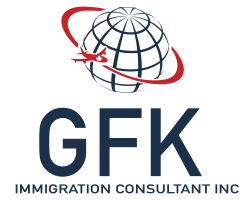
PGWP Eligibility Clarity Restored
New IRCC Update: The internet was buzzing with panic recently when Canada’s Immigration, Refugees and Citizenship Canada (IRCC) rolled out unexpected “text changes” to its Post-Graduation Work Permit (PGWP) eligibility rules on its website.
Students feared their dreams of working in Canada after graduation were slipping away.
But hold onto your maple syrup—IRCC has now corrected the confusion, and the updated details are a game-changer for international students.
If you applied for your study permit before November 1, 2024, you’re in the clear!
Here’s the full scoop on this rollercoaster update, to keep you ahead of the curve.
Table of Contents
What’s the PGWP, and Why Does It Matter?
The Post-Graduation Work Permit is a golden ticket for international students graduating from Canadian institutions.
It lets you stay and work in Canada after your studies, gaining invaluable experience that could pave the way to permanent residency.
However, not every graduate qualifies—eligibility hinges on specific rules tied to your school, program, and even your passport’s expiry date.
With recent changes sparking chaos, the IRCC’s latest clarification is a sigh of relief for many.
IRCC Update: Pre-November 1, 2024 Applicants Are Safe!
Here’s the headline-worthy update: if you submitted your study permit application before November 1, 2024, you’re exempt from the new restrictions.
Earlier this year, IRCC tightened the rules, limiting PGWP eligibility to graduates from programs in high-demand fields like healthcare, tech, and trades. This left students in other disciplines sweating bullets.
But the corrected IRCC website now confirms that those who got their applications in before the deadline dodged these field-of-study requirements entirely. Cue the collective exhale!
For everyone else applying on or after November 1, 2024, the new rules apply: your program must align with Canada’s long-term labour shortages.
Not sure if your field qualifies? Check the eligible fields list.
How Long Can You Work with a PGWP?
The duration of your work permit depends on your program’s length—here’s the breakdown:
- Master’s Degree Graduates (as of February 15, 2024): Even if your program was under 2 years, you can snag a 3-year PGWP as long as it lasted at least 8 months (or 900 hours in Quebec). This perk applies only to master’s degrees—not certificates or diplomas.
- Programs of 8 Months to Less Than 2 Years: Your work permit matches your program length. Finish a 9-month course? You could get a 9-month permit.
- Programs of 2 Years or More: You’re eligible for a 3-year PGWP.
- Multiple Programs: Completed more than one eligible program? Their lengths can stack up, provided each was at least 8 months long.
Pro Tip: Your passport must be valid for the full work permit duration you’re eligible for, or your permit gets cut short.
If it expires early, you can try applying for a renewal on paper to extend your permit later, but the decision is at the discretion of the processing IRCC officer.
Who Can Apply? Full Eligibility Breakdown
To grab a PGWP, you need to tick these boxes:
- General Rules: Graduate from a PGWP-eligible Designated Learning Institution (DLI)—check the DLI list—with a program at least 8 months long.
- You must have been a full-time student (part-time is okay in your final semester) and apply within 180 days of finishing your program, with a valid study permit during that window.
- Language Skills (Post-November 1, 2024 Applicants):
- Bachelor’s, Master’s, or Doctoral grads: Minimum CLB 7 (English) or NCLC 7 (French) in all four areas—reading, writing, listening, and speaking.
- Other university programs: Same as above.
- College/Polytechnic grads: CLB 5 or NCLC 5.
- Flight school grads: No language requirement.
- Field of Study: Only applies if your study permit application was on/after November 1, 2024—your program must match an in-demand occupation.
Who’s Out? You can’t apply if you’ve already had a PGWP, studied ESL/FSL, took over 50% of your program online (exceptions for COVID-19 apply), or graduated from a non-eligible DLI program.
Special Cases You Need to Know
- Flight School Grads: No field-of-study or language rules—just prove you’ve got a commercial pilot’s license or a flight instructor job offer from a DLI.
- Distance Learning: Studied online from outside Canada during COVID (March 2020–August 31, 2022)? You’re still eligible if your study permit was approved before your program ended. Post-September 1, 2024, at least 50% of your program must be in-class in Canada.
- Accelerated Programs: Finished a 1-year program in 8 months? You can still get a 1-year PGWP.
The IRCC’s initial vagueness sent shockwaves through student forums and social media, with many fearing their Canadian dream was dead.
The swift correction not only restores hope but also highlights Canada’s commitment to keeping its immigration system fair and transparent.
Your Next Steps
- Check Your Status: Submitted your study permit before November 1, 2024? You’re golden—no field restrictions apply.
- Plan Ahead: Applied later? Ensure your program aligns with eligible fields and brush up on your English or French.
- Stay Updated: Bookmark the IRCC’s PGWP page for real-time changes.
The clock’s ticking—share this with every student you know, because this update could make or break their Canadian journey.
Who is exempt from the new PGWP field-of-study restrictions in 2025?
If you submitted your study permit application before November 1, 2024, you’re exempt from the new PGWP rules requiring your program to align with high-demand fields like healthcare or tech.
You can apply for a Post-Graduation Work Permit regardless of your area of study, as long as you meet other eligibility criteria, such as graduating from a PGWP-eligible Designated Learning Institution (DLI).
How long can I work with a PGWP?
The duration of your PGWP depends on your program’s length. Master’s degree graduates (post-February 15, 2024) can get a 3-year permit if their program was at least 8 months long.
For other programs, an 8-month to 2-year course gets you a permit matching its length (e.g., 9 months of study = 9-month PGWP), while 2+ years earns you 3 years.
Note: your passport must be valid for the full duration, or your permit will be shorter.
What are the language requirements for a PGWP in 2025?
For PGWP applications submitted on or after November 1, 2024, language skills are needed.
Bachelor’s, master’s, or doctoral grads need a CLB 7 (English) or NCLC 7 (French) in all four areas—reading, writing, listening, and speaking. College or polytechnic grads need CLB 5 or NCLC 5.
If you applied before November 1, 2024, or graduated from a flight school, no language test is required.
Why did IRCC update the PGWP eligibility rules, and how does it affect international students?
IRCC tightened PGWP rules in 2024 to focus on labour shortages, limiting eligibility to high-demand fields for study permit applications on/after November 1, 2024.
The update came after confusion on the IRCC website sparked panic, prompting a clarification that pre-November applicants are exempt.
This shift aims to balance Canada’s economic needs with its appeal to students, who contribute billions annually, but it’s left many rethinking their study plans.
GFK Immigration
Gboyega Esan RCIC R708591
Phone: +1 (647) 225-0092
#studyincanada #studyabroad #canada #studyinuk #studyinaustralia #ielts #studentvisa #studyinusa #studyvisa #immigration #canadavisa #visa #education #internationalstudents #overseaseducation #study #canadaimmigration #highereducation #studyoverseas #canadastudyvisa #immigrationconsultant #australia #university #workpermit #canadapr #expressentry #studyineurope #immigrationcanada #studyingermany

